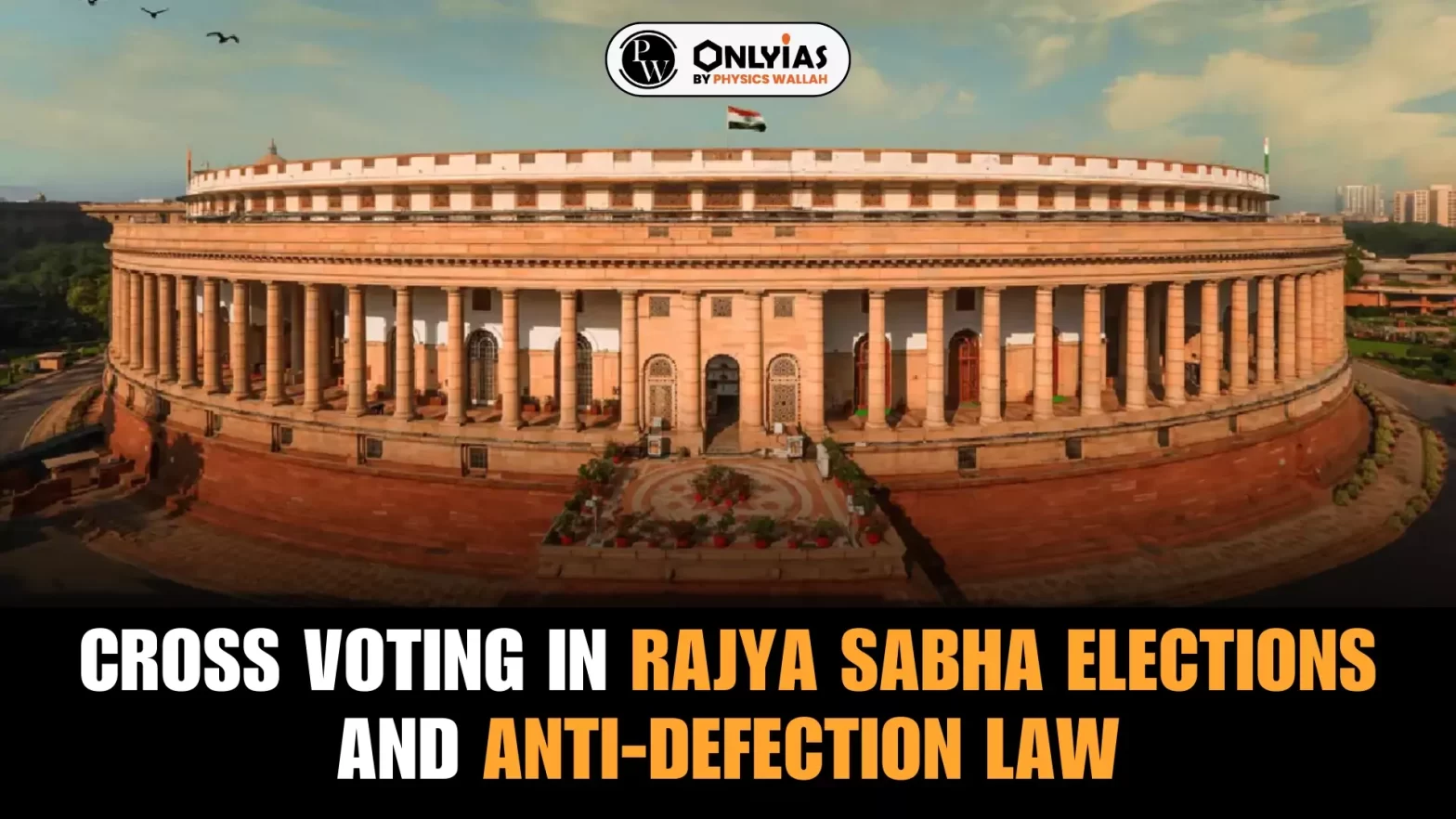![]() 2 Mar 2024
2 Mar 2024

This editorial is based on the news “On cross voting in Rajya Sabha elections | Explained” which was published in the Indian Express. Recently, Rajya Sabha elections in Uttar Pradesh, Himachal Pradesh, and Karnataka had witnessed instances of cross voting raising concerns on the sanctity of the election process.
| Relevance for prelims: Parliament, Rajya Sabha-Election Process, Schedules Of Indian Constitution, and Anti defection Law, and Supreme Court.
Relevancy for Mains: Indian Constitution – Historical underpinnings, evolution, features, amendments, significant provisions and basic structure. |
|---|
Cross Voting in Rajya Sabha Elections: Constitutional Provisions
Historical Context:
|
|---|
| Prelims PYQ (2015):
There is a Parliamentary System of Government in India because the (a) Lok Sabha is elected directly by the people (b) Parliament can amend the Constitution (c) Rajya Sabha cannot be dissolved (d) Council of Ministers is responsible to the Lok Sabha Ans: (d) |
|---|
| Must Read | |
| NCERT Notes For UPSC | UPSC Daily Current Affairs |
| UPSC Blogs | UPSC Daily Editorials |
| Daily Current Affairs Quiz | Daily Main Answer Writing |
| UPSC Mains Previous Year Papers | UPSC Test Series 2024 |

<div class="new-fform">
</div>